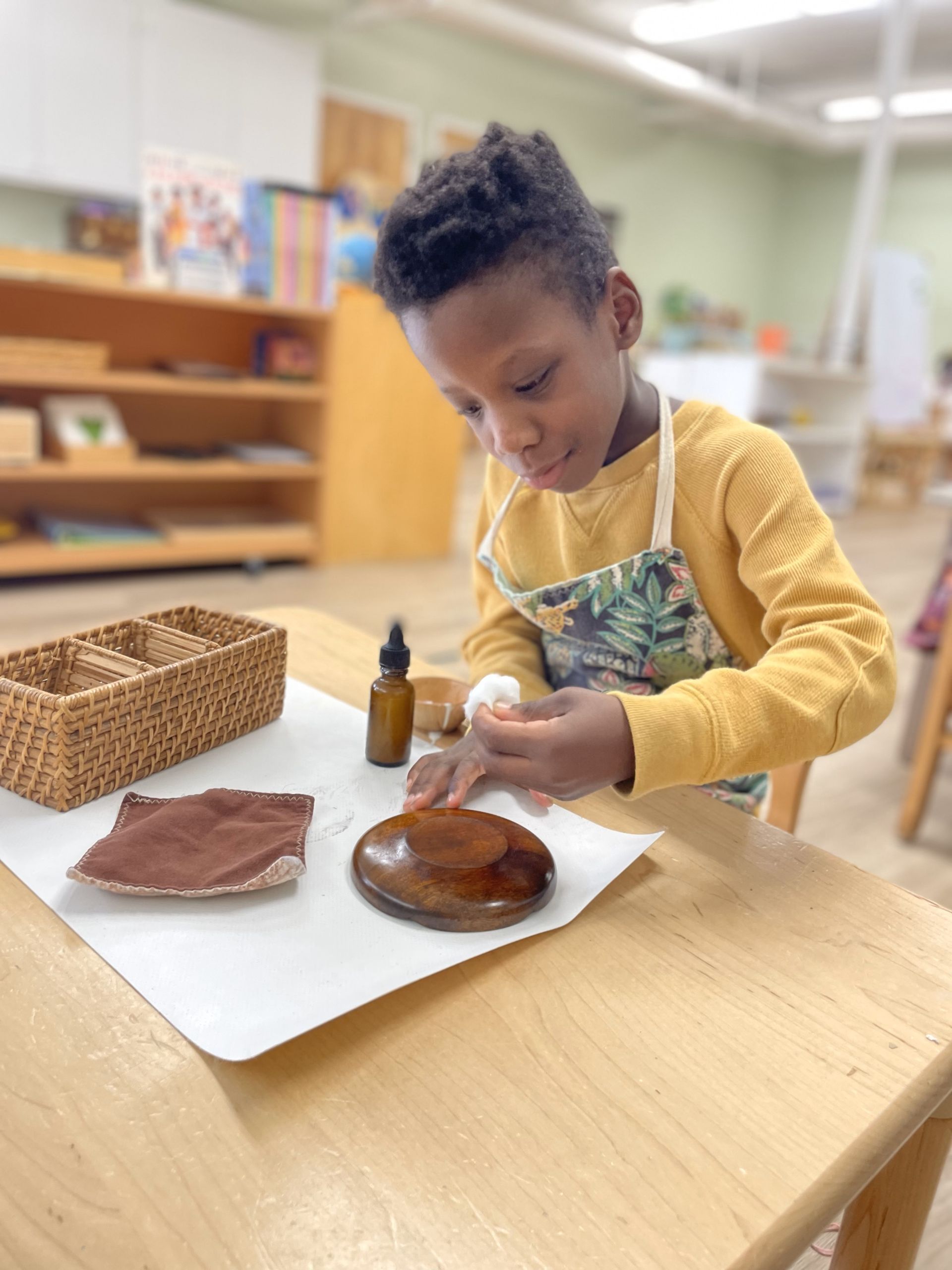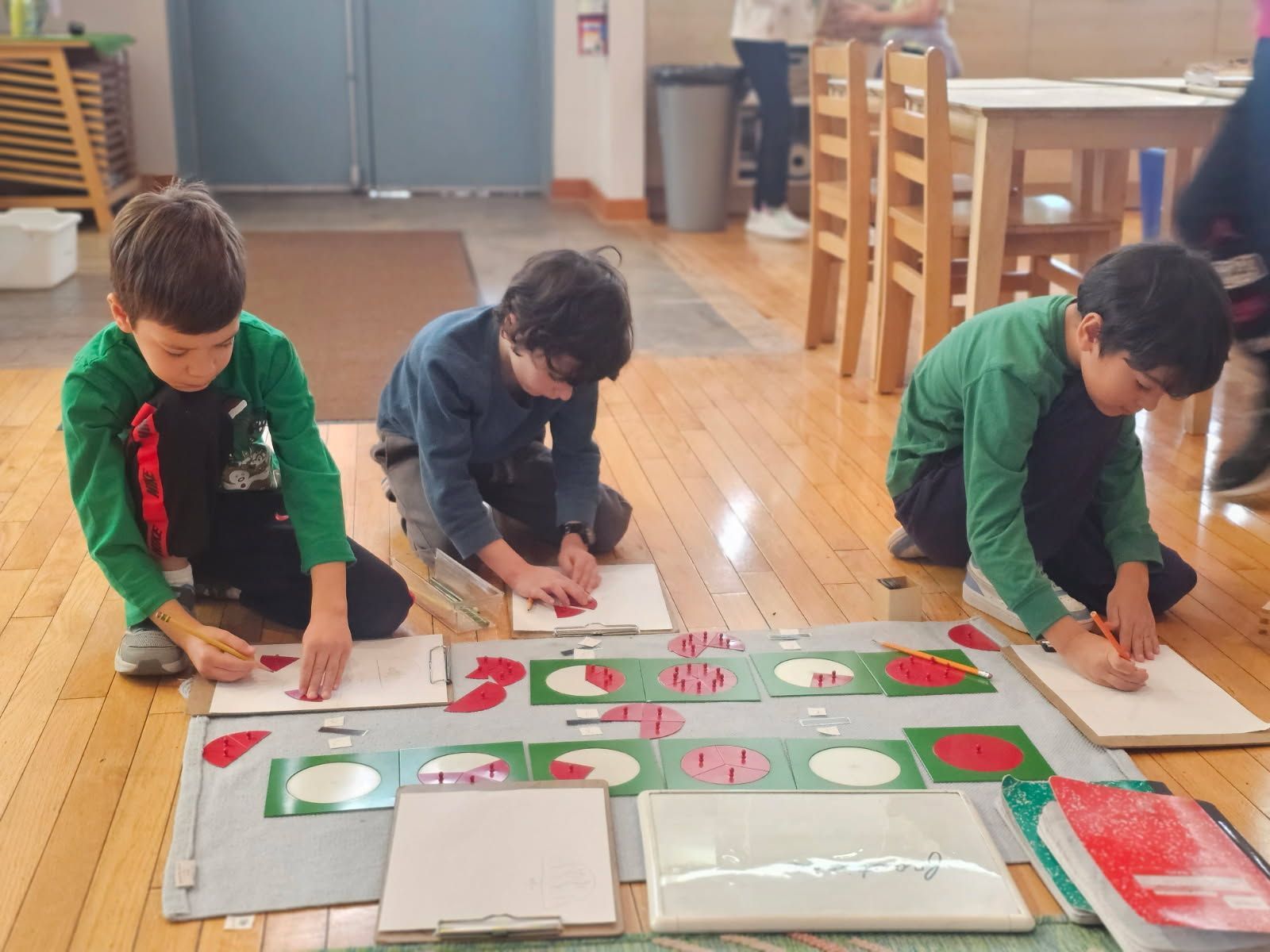
The Montessori method of education was born from Dr. Montessori's scientific observations as she explored how to support
children’s optimum development. In her studies, Dr. Montessori found that children need a block of uninterrupted time to go
through cycles of focus and consolidation. Children two and a half and older need at least three hours to move through
rhythms of focus. Often, the most growth and meaningful work happens toward the end of a three-hour block of time.
The Flow State
We can think about this in terms of the current-day understanding of what it means to get into a flow state. Sometimes,
people describe a flow state as “being in the zone.” It’s when we are so immersed in and focused on what we are doing that
a sense of time and our surroundings disappears.
This concept of “flow” was introduced in the 1970s by Mihaly Csikszentmihalyi, a psychologist whose studies of happiness
and creativity led to his articulation of this highly focused mental state conducive to creativity and productivity. When
Csikszentmihalyi’s grandchildren started going to a Montessori school, he was delighted to see how Montessori learning
environments allowed young children to achieve this state of flow.
Long Uninterrupted Periods of Time
In order to get into their state of flow, children need about a three-hour block of uninterrupted time. Therefore, we have
designed school and classroom schedules so that children can benefit from an interrupted morning work cycle.
Part of the morning routine involves children having enough time to greet their peers and go through their transition process
without being rushed as they enter the classroom environment. When children are ready and in the classroom, the teachers
(also known as guides) can focus on giving lesson presentations and supporting children as they start their day.
During the work cycle, children are engaged in a variety of activities–some they choose, some the adult guides them toward,
and some individual or small group lessons. This opportunity to make choices of activities that have personal meaning and
engagement provides several cognitive, emotional, and social benefits.
Benefits of the Work Cycle
When children can focus without interruption or externally driven transitions to another activity, they experience deep
concentration. With all of the competing distractions in our world, this extended time to settle into their tasks and explore
without pressure allows children to develop the “mental muscles” to sustain their focus.
Neuroscience shows that deep focus activates the prefrontal cortex, the brain area responsible for executive functions like
planning, decision-making, and problem-solving. When frequent interruptions happen, the prefrontal cortex can’t engage
fully, leading to fragmented thinking. Basically, when interruptions occur, the brain must reset and reorient itself, which can
significantly impair learning and problem-solving. Plus, we know it takes time to transition into a focused state mentally, and
shorter periods don’t allow this natural process to unfold.
Deep focus enhances memory retention, comprehension, and problem-solving skills. When children aren’t stressed by
racing against a clock or knowing they will be pulled out of an engaging activity, they develop a more relaxed and open
mindset. This mindset helps children retain their learning, approach challenges confidently, and solve problems more
effectively. Children who concentrate deeply are also more likely to feel a sense of calm and satisfaction, which helps them
manage their emotions more effectively.
In summary, Montessori’s uninterrupted work periods allow children to fully utilize their cognitive resources, making the
learning process more efficient and satisfying.
Work Periods in Action
In her book, The Absorbent Mind, Dr. Montessori wrote about the profound benefits of deep concentration. She also
observed that when children are allowed to work without interruption, they often become calmer, more focused, and more
confident.
The list of benefits goes on and on! From promoting responsibility and time management to strengthening intrinsic
motivation and curiosity, long, uninterrupted work periods have broad implications for children’s success as lifelong learners.
The teacher also plays a vital role in observing and supporting children during these work cycles so that children can be
guided into healthy challenges, new learning, and necessary practice. Children learn that with the freedoms of this
uninterrupted time, there are also clear boundaries and expectations. Thanks to the calm, respectful atmosphere of
Montessori learning communities, work periods tend to have an ordered, busy hum.
Are you curious about the multifaceted benefits of long, uninterrupted work periods? We would love to have you visit and
see them in action. Reach out today to schedule a time to tour the school at
https://www.wsms.org/schedule-tour




